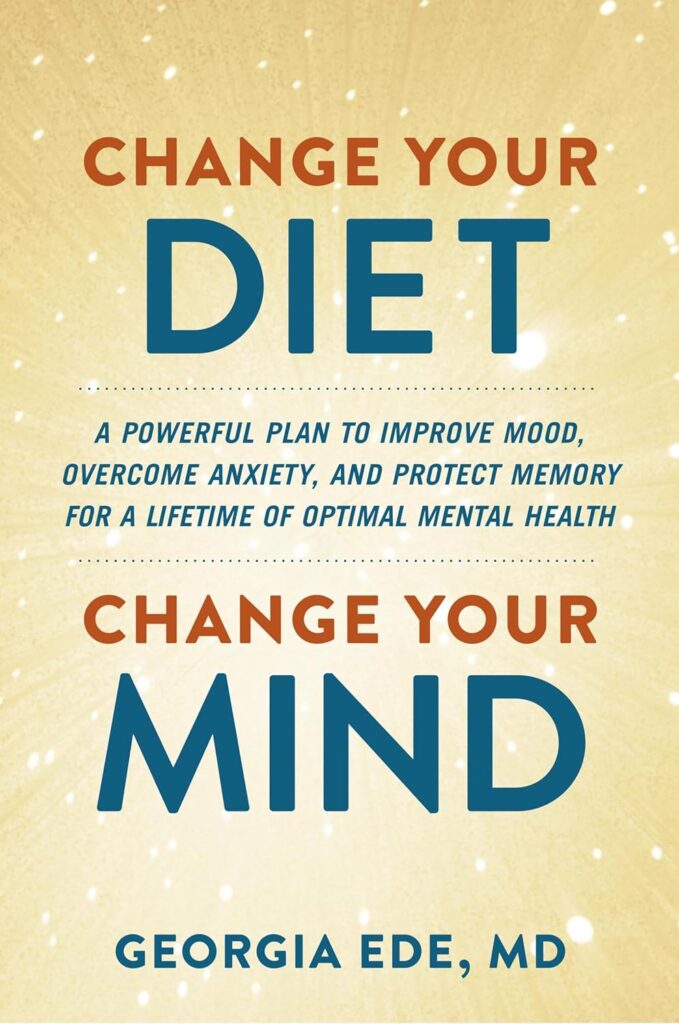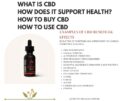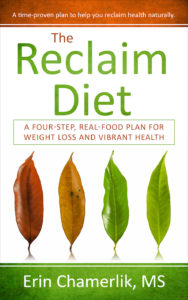
Depression and Nutrition
All drugs have side effects, including over-the-counter medications.
The most common side effects associated with anti-depressants include (1)
- Headache
- Nausea
- Insomnia and nervousness
- Agitation
- Sexual problems
What a quandary!
Millions of Americans want relief and help for depression. Quite often doctors give just two treatment options, medication and psychotherapy.
There is a third option that is completely safe and without side effects. This effective treatment option is nutrition – food and natural supplements.
Diet and Depression
The first step is to lay a great foundation by eating a balanced whole food diet, rich in healthy fat and clean animal protein.
Develop the habit of eating three meals each day and two snacks.
Get the Book by Georgia Ede, MD, Change Your Diet, Change Your Mind. A powerful plan to improve mood, overcome anxiety, and protect memory for a lifetime of optimal mental health.
Protein
Our brain needs to be nourished and the primary nutrient that we must eat three times a day is protein. Amino acids come from the protein that we eat and amino acids are the raw materials that the body uses to build happy brain chemicals called neurotransmitters.
The most concentrated sources of protein for making neurotransmitters are found in animal sources like fish, poultry, beef, eggs, dairy, lamb, pork and venison.
Julia Ross, author of The Mood Cure says, “There’s no question about this one, I’ve seen hundreds and hundreds of people add more protein to their lives and report great changes in their moods within days as a result.”
Ross also adds, “Most people seem to need 20 to 30 grams of protein per meal. That means at least a palm-of-your-hand-size portion of protein three times a day!”
Fat
Our brains are two-thirds fat and having enough natural fat in our diet is critical to proper function of our happy brain chemicals! Omega-3 fatty acids are prevalent in fish like salmon, sardines, and herring.
Eat fish several times a week and supplement with a quality cod liver oil or ProOmega gel caps.
Additionally, enjoy unrefined coconut oil, olive oil, olives, nuts, seeds and organic butter and cream.
Eating low-fat and fat-free is very harmful to the brain, nerves, hormones and every cell. Eliminate unhealthy processed fats like canola oil, margarine, sunflower oil, safflower oil, corn oil, cottonseed oil and any food that has been deep fried.
Carbohydrates
Enjoy a variety of non-starchy low-oxalate vegetables, the best carbohydrates for happy moods. Vegetable carbohydrates are a rich source of nutrients and they don’t sabotage your health and good mood like refined grains can. Whole fruit is also nutrient rich and can also be included.
Eating a whole food diet will help avoid artificial ingredients commonly found in processed foods. Artificial sweeteners, MSG, dyes, preservatives and additives may cause great harm to brain cells and disrupt mood.
Supplements
Several nutrients are very helpful for those suffering from depression, including
- Vitamin D3 5,000 + K2
- Omega 3 Fatty Acids
- Zinc (try MultiMineral without iron)
- Specific amino acids (like 5HTP and GABA)
5-HTP is the intermediate precursor in the natural synthesis of serotonin, a neurotransmitter that helps to regulate mood, appetite, and sleep/wake cycles. 5-HTP readily crosses the blood-brain barrier and clinical studies suggest that 5-HTP can support healthy serotonin levels. Serotonin is associated with a positive mood and provides a substrate for the production of melatonin.
- GABA Promotes positive mood, supports relaxation and moderates occasional stress
GABA is the primary inhibitory neurotransmitter in the central nervous system, playing a central role in regulating cell-to-cell communication. Healthy levels have been associated with a positive mood. A recent study indicates that GABA also supports alpha wave production in the brain to promote relaxation and moderate occasional stress. In the same study, it supported healthy IgA levels, suggesting that it may support immune health during occasional stress.• Helps moderate occasional stress
• Regulates cell-to-cell communication
Stop eating processed food and refined sugar
Sugar can lead to depression. Sugar is found in most processed foods, so avoid eating processed foods, breads, soft drinks and snacks that contain any sugar or refined flour which quickly converts into sugar in the bloodstream.
Drink filtered water
Caffeine is dehydrating, so limit coffee and caffeinated tea and other drinks with caffeine, sugar or artificial sweeteners. Increasing your water intake impacts tryptophan’s availability to the brain.
Albert Grazia, M.S., N.D. says, “Depression may be another complication of chronic dehydration. The amino acid tryptophan is required by the brain to produce the neurotransmitter serotonin, which subsequently is needed to make melatonin.
An adequate amount of water is required for tryptophan to be transported into the brain. Dehydration may limit the amount of tryptophan available to the brain and to complicate matters.” (2)
How much water do we need to drink?
Drink half your body weight in ounces of filtered water. For example, a person weighing 150 pounds needs to drink 75 ounces of water each day.
Using nutrition to restore balance and ease depression is an effective treatment option for many people. Rather than thinking of nutrition as a quick fix, continually build good habits into your life, making lifelong changes that will enable you to achieve your health goals now and in the future.
Get Better Wellness is reader supported. This post may contain affiliate links, which means that I may receive a small commission when you buy from links on this site. This is at no cost to you.
Recommended
-
IpriflavoneMarch 29th, 2025
-
How to Make Bone Broth – Chicken Bone BrothMarch 11th, 2025
-
GABA Reduces Stress and Enhances SleepMarch 6th, 2025
-
Boron’s Role in Hormones, Inflammation, Bones, Teeth, Memory, Immune function and Cancer ReductionMarch 3rd, 2025
-
What is CBD? How does it support health?February 17th, 2025










